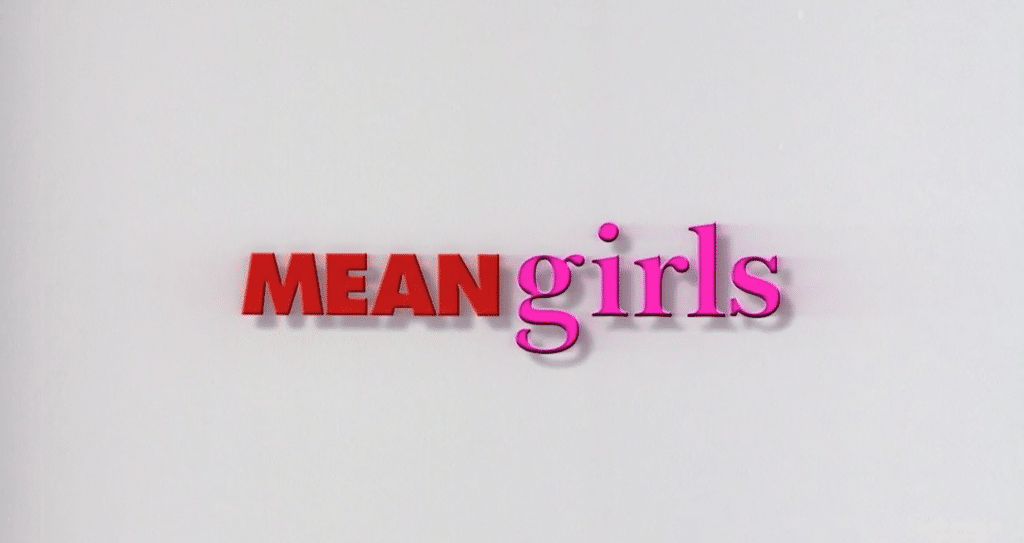As if spilled from the chaos of a teen’s charm-braceleted arm, we dive headfirst into the realm of Mean Girls. Emerging in 2004, this teen comedy etched its name into the annals of pop culture history, quickly achieving cult status and outliving its yearbook photos with unparalleled grace and a barrage of iconic quotes.

Cady Heron, our wide-eyed protagonist, recently transplanted from the African wilderness, quickly learns that the law of the jungle bears striking similarities to the social dynamics of American high school. She’s lost as regular teenagers are when looking for someone to help with homework or do assignment for me entirely. The narrative cleverly portrays high school dynamics and peer pressure, underlying themes of friendship and identity that resonate with not just teenagers but audiences of all ages. The social cliques, the yearning to belong, and the trepidation of standing out — all paint a poignant portrayal of adolescence that, like our most embarrassing yearbook photos, never really fades away.
The characters of Mean Girls are not your average teen comedy caricatures, oh no. These are intricately crafted personalities that could be likened to the carefully chosen accessories adorning the Plastics on a non-uniform day. The haughty Regina George, quirky Janis Ian, and lovably eccentric Damian are more than just characters on a screen; they’re cautionary tales, they’re your friends, they’re… us. The infamy of these characters has catapulted into everyday language and internet memes, solidifying their place in popular culture. Think of them as the oversized sunglasses of cinema — they never really go out of style.
With a screenplay penned by the formidable Tina Fey, Mean Girls marries humor with satire in the same way high school marries drama with more drama. Fey’s wit is sharper than a stiletto heel, effortlessly blending biting social commentary with genuinely funny dialogue that could even make a ‘cool mom’ chuckle. Like that perfectly cut diamond at Tiffany’s window, Mean Girls are more than just mean girls. It’s a multi-faceted comedy that tackles serious issues while keeping the tone as light as Regina George’s diet.
And let’s not forget those unforgettable scenes that have carved their niche in film history. Remember the moment when Regina George, in all her glory, declared, “You can’t sit with us?” That one line, delivered at the school cafeteria, encapsulates the essence of the social power dynamics at play, showing the harsh reality of high school cliques’ exclusionary tactics. It’s these moments, so seamlessly woven into the narrative, that transform Mean Girls from just another teen movie into a cultural phenomenon.
What’s a tour of Mean Girls without a glance at the infamous “Burn Book?” The unveiling of this secretive notebook of rumors and insults shatters the superficially shiny veneer of the Plastics’ world, revealing a sinister side to the high school clique. It’s a pivotal moment, as uproarious as an ill-timed sneeze in a silent library, which underscores the brutal consequences of gossip and cyberbullying. It’s sharp, it’s dramatic, it’s high school – but with a twist.

Next, let’s break it down to the beat of “Jingle Bell Rock.” A scene that perfectly distills the bizarre and hilarious essence of Mean Girls, the Plastics’ risqué talent show performance is comedic gold. With biting satire woven into every pirouette and hair flip, this scene is as entertaining as watching your school’s football jock attempt ballet – a glorious spectacle of calculated mischief.
No tour of North Shore High would be complete without addressing the phenomenon of “fetch.” Coined by the delightfully clueless Gretchen Wieners, this term quickly became a linguistic sensation, an emblem of Mean Girls‘ unforgettable impact on popular culture and language. Like overused school slang, it has wedged its way into our everyday lingo, a testament to the movie’s lasting influence.
Now, let’s step back, adjust our pink Wednesday outfits, and look at the bigger picture. Mean Girls‘ appeal has proved as timeless as the algebra equations you never thought you’d need post-high school (but do). The movie’s popularity remains unscathed, attracting a dedicated fanbase that transcends generational boundaries. It’s not just another entry in your diary but a cultural cornerstone that has sparked countless references in the media and even a musical adaptation. Its influence looms large over subsequent teen comedies, shaping the portrayal of high school experiences in pop culture.
But why does Mean Girls continue to charm audiences, refusing to be shelved into obscurity? It’s the relatability, the honesty, the biting wit, and the universal themes that we’ve all lived and breathed. It’s because Mean Girls is not just a movie – it’s a mirror of our own experiences. It’s the comforting voice that tells us, “It’s okay if you don’t fit in. It’s okay to be yourself.”
Whether you’re a fan or a critic, it’s undeniable: *Mean Girls* has left an indelible mark on the canvas of cinema. As you turn away from this article, pondering over its content, let’s hope it provokes a thought, a laugh, or even a prompt to revisit the film. Maybe it’s time you trade the best write my essay services for an essay about the lasting impact of Mean Girls. After all, in a world full of Reginas, be a Cady – unapologetically original, a little clueless, but undeniably real.

Latest Posts
-


Film Trailers
/ 14 hours agoGenre sequel ‘M3GAN 2.0’ – final trailer lands
A final trailer for M3GAN 2.0 has landed ahead of its release at the...
By Paul Heath -


Film Trailers
/ 15 hours agoFirst teaser trailer for ‘Downton Abbey: The Grand Finale’
A teaser trailer for the latest instalment in the Downton Abbey series has arrived...
By Paul Heath -


Home Entertainment
/ 1 day ago‘Piglet’ review: Dir. Andrea M. Catinella (2025)
Before settling in to watch Andrea M. Catinella’s Piglet, it is important to point...
By Kat Hughes -


Film Trailers
/ 1 day ago‘Black Phone 2’ trailer; horror sequel lines up October release
A new trailer for Black Phone 2 has landed online from Universal Pictures. The...
By Paul Heath







